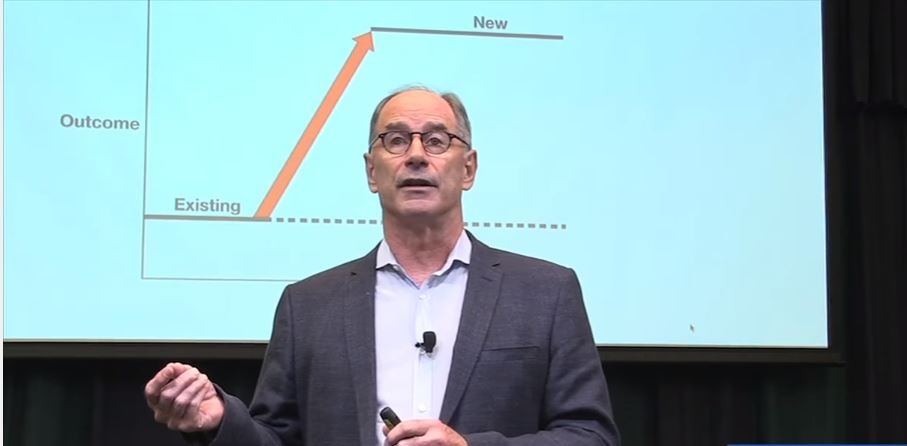
Social entrepreneurship – the business model which aims to combine social change and profit, has the potential to be one of the most significant forces for good in the world.
This is according to internationally acclaimed author and academic, Professor Roger Martin, who told a recent Gordon Institute of Business Science forum: “Social entrepreneurs don’t stop with merely improving a current situation, but rather aim for a complete transformation of a miserable equilibrium.”
“Better” is simply not satisfactory for these entrepreneurs, because they have found themselves in a situation where they have thought; “I’m not going to just stand here and let that be,” Martin explained.
The previously limited field of social entrepreneurship has become a burgeoning activity to make the world a better place.
Professor Martin, who is the institute director of the Martin Prosperity Institute and the Michael Lee-Chin Family Institute for Corporate Citizenship at the Rotman School of Management in Toronto, explained that social entrepreneurs borrow from both the government-led and business-led social transformation.
Whereas government-led initiatives are achieved through mandatory legislation with the purpose of social benefit for all citizens and are ubiquitous in scope; under business-led social entrepreneurship the customer is the beneficiary, scope is limited, structure is voluntary, and the purpose is profit. Social entrepreneurship is unique in creating a transformation that lies between these two poles.
Often led by an individual with a great capability to communicate their vision, most social entrepreneur ventures consist of a small group with a charismatic founder.
“Often there is a driving singular force who is able to leverage the skills of the people around them and make them highly included in the effort,” Martin said.
Identifying social entrepreneurship opportunities involves progressing through various stages of transformation:
- Understanding: Understand entrepreneurs need to spend time understanding the world ‘as it was’ or what Martin called the “the miserable equilibrium.” This involves developing an understanding and appreciation of the reasons for the current dispensation.
- Envisaging – Envisage a better future that is not just better, but transformed. A solution is not just an attempt to merely make the problem better, but rather make it go away all together;
- Building a model for change – While the current model may be underpinned by an economic model which provides some benefit, at some cost, a transformed solution will either take the value up, or bring the cost down. Martin cited the example of the Fair Trade coffee movement that adds value to the system and transforms the lives of small-scale coffee farmers by asking consumers in developed countries to pay a small added fee; and
- Scale is integral to making an impact. The key to scaling is creating a model that has declining economic costs with scaling.
Martin identified scale and cost as the most important factors in a successful social entrepreneurial venture. The cost structure must work in such a way as to not only make the initiative effective, but to allow the venture to get better and stronger as it gets bigger.
For corporations who want to embed social change in the core of their businesses, it is not necessary to invent entrepreneurial solutions, but to rather become early adopters and respond positively when opportunities present themselves.
“Companies should look for and support social entrepreneurs which are a good fit for their business,” Martin said.
Martin used the example of United States retailer Target partnering with the GoodWeave certification programme, which allows companies that pass inspection to attach a logo certifying that their product is made without child labour.
GoodWeave’s consumer country programmes in the US, United Kingdom and Germany places the power into the hands of the consumer to discern their purchase, and lowers incremental costs with every retailer and manufacturer who want to support the initiative.
In conclusion, Martin reiterated his belief in the transformative power of social entrepreneurship, “There is an unlimited capacity for this to happen. It’s so distributive, you don’t have to wait for government. There are all these people with great ideas out there changing the world.”




 Publications
Publications
 Partners
Partners








